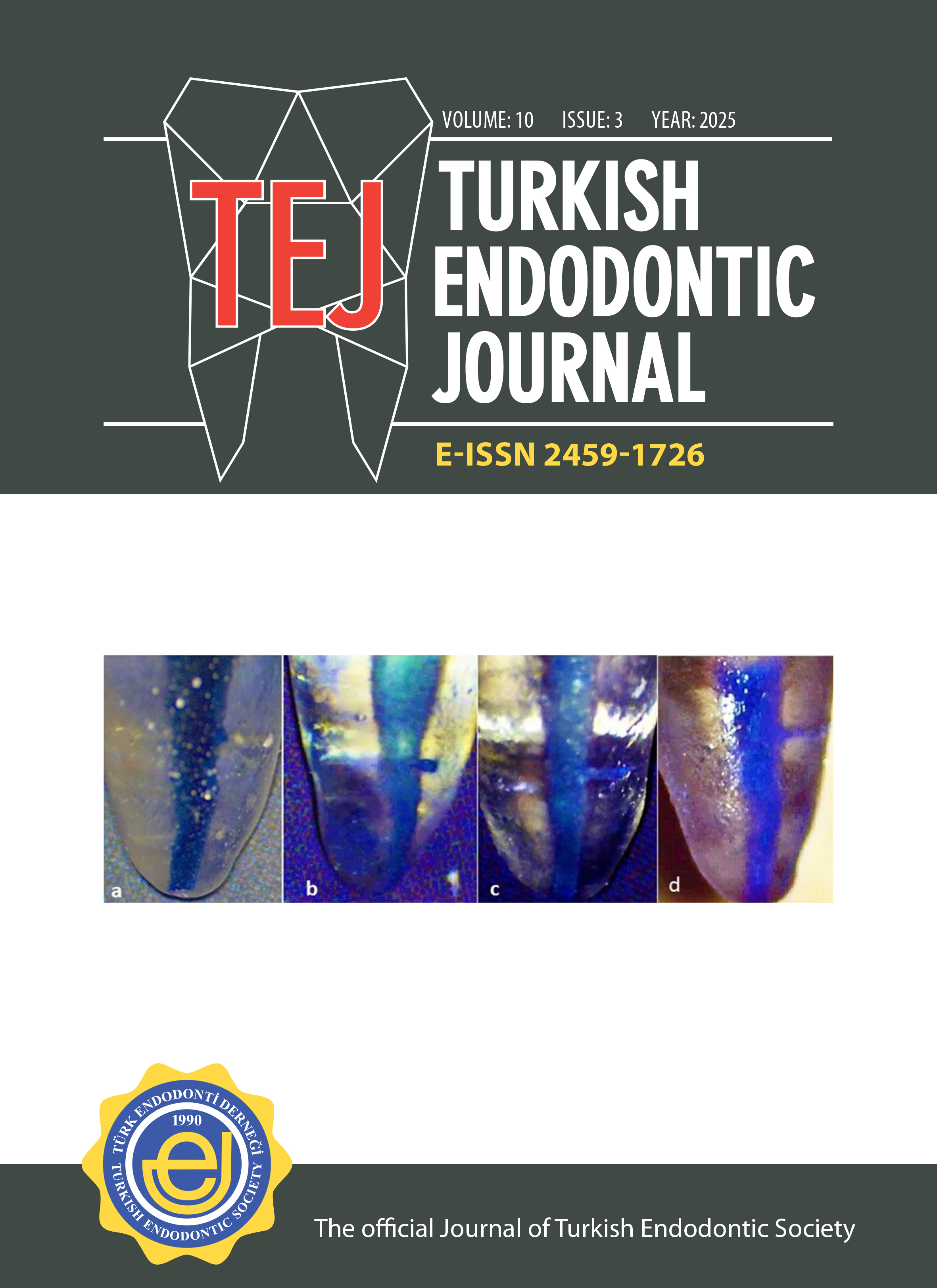Peer Review Policy
This journal uses a double-blind independent peer-review process. The peer-review process is designed to assess the validity, quality, and originality of articles for publication. This process aims to maintain the integrity of science by filtering out invalid or poor-quality articles. Reviewers should conduct reviews in an ethical and accountable manner in the Turkish Endodontic Journal. Turkish Endodontic Journal follows the ethical guidelines of COPE (Committee on Publication Ethics) for peer reviewers. A manuscript sent for evaluation should be treated as a confidential document, and its content should not be discussed with others. Reviewers who seek assistance from a trainee or colleague in the performance of a review should acknowledge these individuals' contributions in the written comments submitted to the editor. Reviewers must maintain the confidentiality of the manuscript, which may prohibit the uploading of the manuscript to software or other AI technologies where confidentiality cannot be assured. Reviewers must request permission from the journal prior to using AI technology to facilitate their review.
Turkish Endodontic Journal invites reviewers to have a valid degree in Medicine and a Specialty diploma or a Ph.D. in related areas.
Turkish Endodontic Journal invites reviewers who have original research publications listed on their CVs.
Turkish Endodontic Journal invites the reviewers to review a manuscript by an invitation e-mail which includes the proposed review duration (maximum 3 weeks) and their log-in information for the electronic submission system.
Reviewers have to log in to the electronic submission system and must inform the editorial board if they will review the manuscript or not by selecting one of the two options in the system (“Accept” or “Decline”).
The reviewers must complete the assigned review within the proposed review duration provided in the invitation e-mail (maximum 3 weeks)
The reviewers contribute to the editorial process by assisting authors in improving their work and providing their opinion on the suitability of the papers for publication in a timely manner. Personal comments are not appropriate, and all comments and/or questions directed to the authors should be stated clearly and concisely.
The peer-review process is supposed to provide the editor with the proper context and perspective to decide on the acceptance (and/or revision) of the manuscript.
Reviewers should be alert for inadequate citation of previous work and similarities between the manuscript under consideration and published papers. In order to avoid any potential conflict of interest, reviewers should immediately contact the Editor-in-Chief and refuse to take part in the editorial process if the manuscript they agreed to examine is closely related to their ongoing research projects, which can result in competitive, collaborative, or other relationships/connection with the authors.
Reviewers cannot use the information they gained by reviewing a manuscript for their own research purposes until it is published.




















